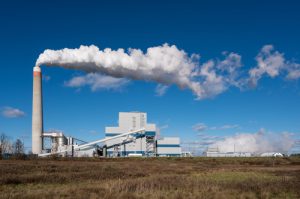
U.S. Sen. John Hoeven (R-ND) on April 6 outlined plans for how his home state could be the next-generation technology leader that positively changes coal-fired power usage in the United States.
“Our cooperatives and their members need the certainty that the energy resources and power plants they rely on are going to be viable for years to come. That’s why it is so important that our state, through the EERC [Energy and Environmental Research Center] and their partners, is developing the technologies that will help us to produce more energy from our coal reserves while also improving environmental stewardship,” Sen. Hoeven said during the annual meeting of the Minnkota Power and Square Butte electric cooperatives in Grand Forks, N.D.
The senator told meeting attendees that the state would continue to invest in the electric coops’ efforts to develop, demonstrate and implement technologies like EERC’s Project Tundra, a post-combustion technology to retrofit existing power plants, and the Allam Cycle, technology for new coal and natural gas power plants that uses supercritical carbon dioxide (CO2) to increase efficiency and capture emissions.
Project Tundra is being developed by Allete Clean Energy, Minnkota Power and BNI Coal in partnership with the EERC at the University of North Dakota. The Allam Cycle is being developed by EERC, Basin Electric and Allete Inc., according to the senator’s staff.
“Project Tundra stands as an example of the innovative work of our state’s energy industry,” Sen. Hoeven said earlier this year. “This technology holds the promise of reducing or eliminating emissions at our existing power plants in a cost-effective manner, which means we can continue to have reliable and affordable energy while also advancing better environmental stewardship.”
Sen. Hoeven also explained during the annual meeting how he has and will continue to work on nailing down funding for the EERC. For example, for fiscal year (FY) 2018, he secured $35 million in funding for post-combustion coal technologies such as EERC’s Project Tundra, and secured $24 million to support the research and development of projects like the center’s Allam Cycle. In FY 2017, the senator secured $6 million in funding for Project Tundra.
The senator also discussed the CO2 Regulatory Certainty Act, S. 1663, which he introduced on July 27, 2017. The measure would ensure that CCS project developers are eligible for the section 45Q tax credit by aligning tax guidelines with existing Environmental Protection Agency regulations. By speeding up the work on CCS projects, S. 1663 would aid in the provision of one of the energy technologies needed to utilize the nation’s coal resources, according to the senator’s staff.
S. 1663 has four cosponsors, including U.S. Sens. Steve Daines (R-MT) and Roger Wicker (R-MS), and has been referred to the U.S. Senate Finance Committee for consideration.



